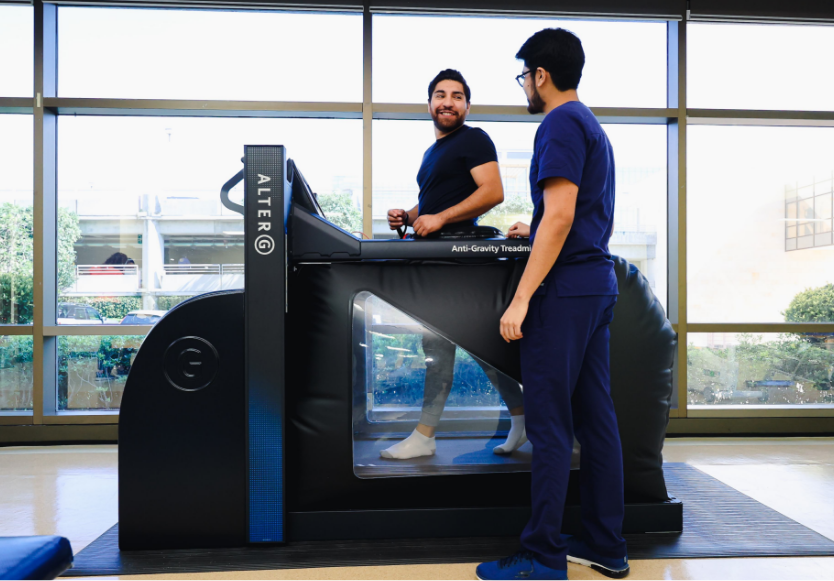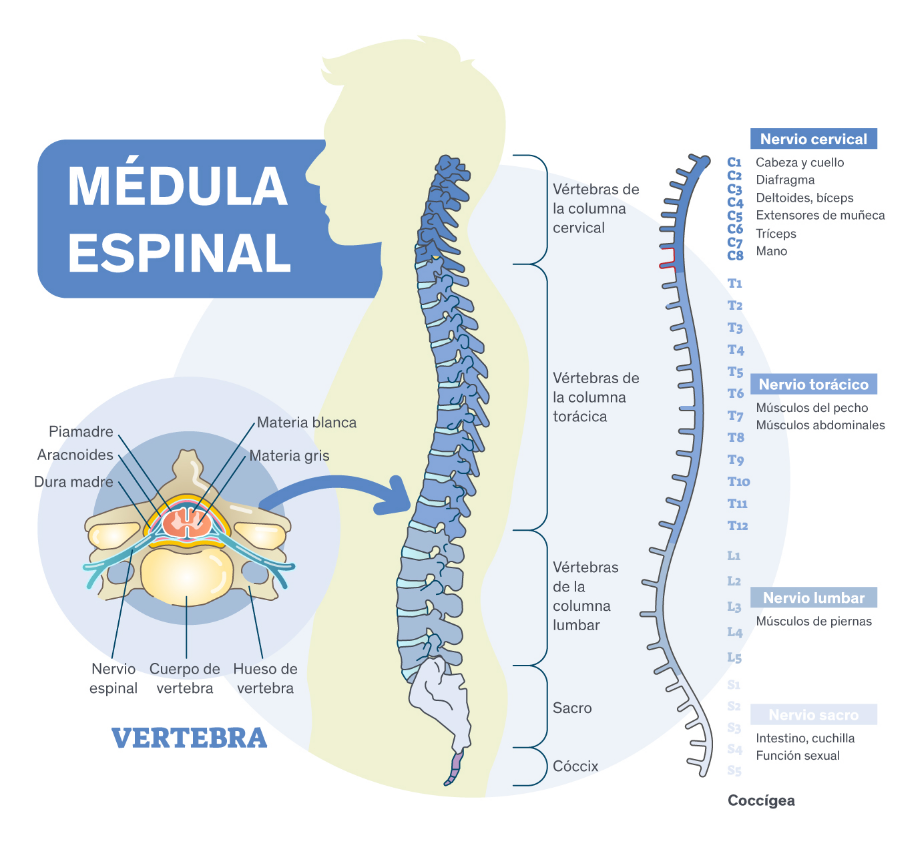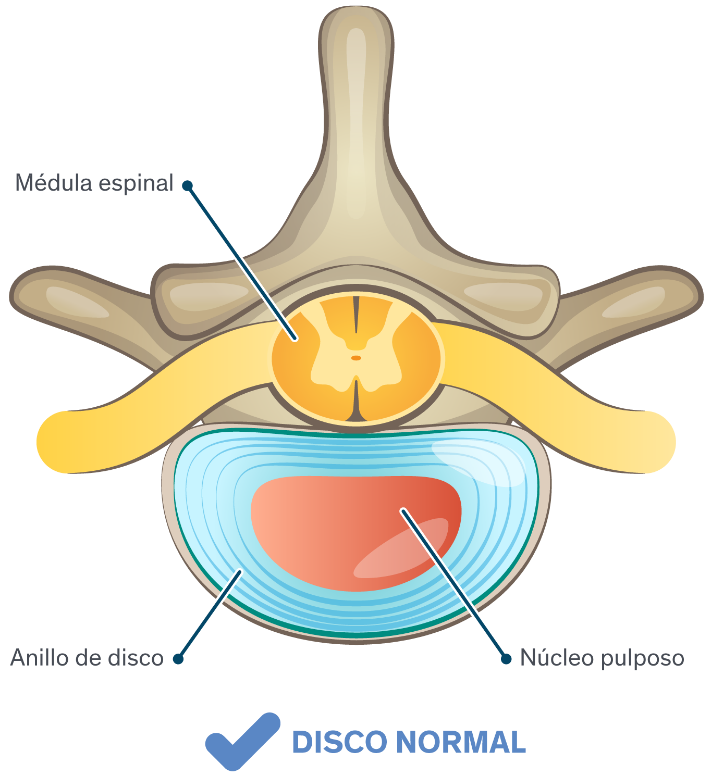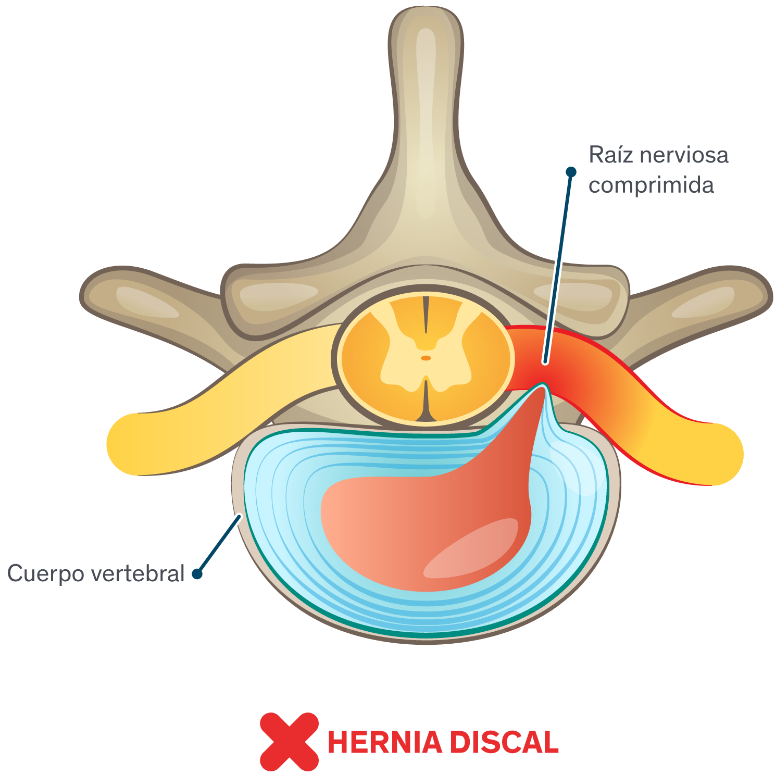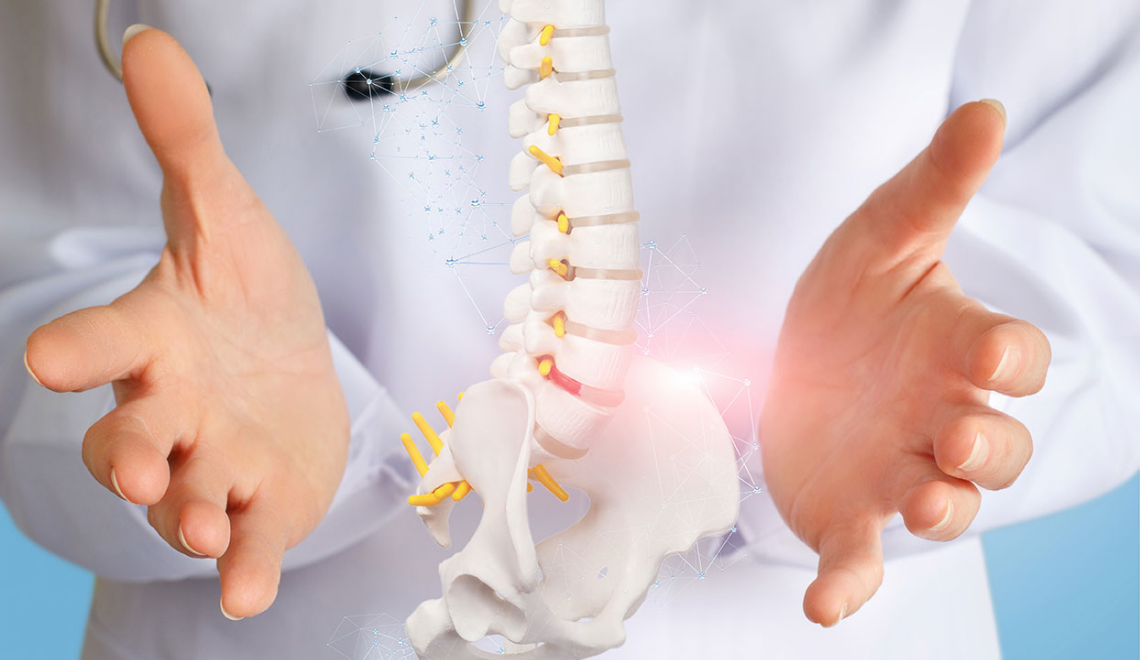Spine Clinic
Having a healthy spine is synonymous with a good quality of life. At ABC Medical Center we have the experience, the technology, and the best care to solve your condition.
- Spine surgery specialists
You will be treated by a multidisciplinary medical team that will contribute their expertise and specialty to provide you with the appropriate treatment according to your needs. - Multidisciplinary cases
We hold monthly meetings to review clinical cases among different specialists, which enriches professional practice through continuing education based on scientific evidence and impact on the patient’s clinical results. - Clinical results
The Spine Clinic has clinical outcome indicators comparable to international centers, as in the case of surgical site infections and unscheduled reoperations.- Surgical reoperation rate: 1.6% (ABC Medical Center) vs 3% (American College of Surgeons NSQIP)
- Surgical site infection rate: 0.54 (ABC Medical Center) vs 1.002 (CDC Healthcare-Associated Infections 2019)
- Minimally invasive spine surgery
We have state-of-the-art technology that allows us to solve, through minimally invasive techniques, pathologies that include deformities, tumors, fractures, degenerative diseases such as herniated intervertebral discs and spinal stenosis in the cervical, thoracic and lumbar regions, as well as in the craniocervical and lumbopelvic junctions.
- Minimally invasive spine surgery
We have state-of-the-art technology that allows us to solve, through minimally invasive techniques, pathologies that include deformities, tumors, fractures, degenerative diseases such as herniated intervertebral discs and spinal stenosis in the cervical, thoracic and lumbar regions, as well as in the craniocervical and lumbopelvic junctions.
Spine
The spine is a key piece to keep us upright and is the cornerstone of our movement and independence as autonomous beings.
Its composition consists of 33 vertebrae including 7 cervical, 12 dorsal, 5 lumbar, 5 sacral, and 4 coccygeal vertebrae (fused into one), as well as the intervertebral discs between them and a series of muscles and ligaments that hold them together and allow it to move in a controlled and safe way.
Minimally invasive spine surgery
The term minimally invasive spine surgery includes several groups of procedures such as, in order of invasiveness, percutaneous, tubular endoscopic assisted by microscopy or endoscopy, and mini-open techniques.
At ABC Medical Center we are proud to say that we are the only hospital in Latin America with a training certificate in minimally invasive spine surgery for 10 years, currently endorsed by the Universidad Nacional Autónoma de México, thus contributing socially to the training of highly qualified health care professionals.
Due to its complexity, it requires specialized training that truly guarantees the skills of those who practice it.
Advantages of minimally invasive spine surgery
Minimally invasive spine surgery encompasses a set of techniques to respect the adjacent anatomical tissues as much as possible and, at the same time, achieve the objectives of conventional open surgery while highlighting the following advantages:
- Reduces intraoperative bleeding.
- Decreases infections.
- Less postoperative pain and with it, the consumption of narcotics.
- Disability time with an early return to productive life.
- Aesthetic advantages.
Back pain: warning signs
Neck pain.
Thoracic back pain
(middle and upper back).
Lumbar pain (lower back).
Sciatica pain (lower limbs).
Intense spine pain that does not subside with the usual painkillers.
Warning signs: neurological deterioration
Decrease in strength.
Decreased sensitivity.
Inability to move
Loss of urination and defecation control.
Instability.
Spine surgery specialists
Spine surgery is a shared specialty between neurosurgery specialists and orthopedic specialists dedicated to the diagnosis and treatment of diseases that affect the spine.
At ABC Medical Center, the participation of specialized surgical nurses, circulating nurses, neurophysiologists, biomedical engineers, specialized scrub nurses, technology assistants, anesthesiologist assistants, and radiologists is imperative. Also, technicians specialized in endoscopy or microsurgery, technicians specialized in bone drilling systems, and specialized systems to handle small areas are required, this is what makes it possible for spine surgery to be successful.
Currently, spine surgery has a wide range of surgical procedures as well as a series of technological tools to perform the procedures with greater safety and efficiency.
One of the most common conditions solved through minimally invasive surgery are herniated discs.
Herniated Disc Surgery
Intervertebral discs are structures made up of a jelly-like interior (nucleus pulposus) and a collagen fibrous ring around it. The intervertebral discs serve as shock absorbers of the weight supported by the spine and also, together with the joints (facet), ligaments, and vertebral muscles, allow their movement in different directions.
Herniated disc: symptoms and causes
Its wear occurs as a normal aging process and derives from the stress generated by walking upright, in many cases this process is accelerated by being overweight, high-impact sports (jogging, running, cycling, weightlifting, etc.), smoking, as well as by individual genetics.
A herniated disc may be asymptomatic or may appear as pain in the lower back, neck, or chest (less frequently) or sensations of numbness, tingling, weakness, or pain in the limbs.
When disc herniations are symptomatic and do not improve with painkillers, surgical procedures may be required to eliminate or reduce symptoms and improve the patient’s quality of life.
Diskectomy / Herniated Disc Surgery
Diskectomy is a surgical procedure to remove the damaged part of a herniated disc in the spine.
A herniated disc can irritate or compress nearby nerves.
Diskectomy is most effective for treating pain that radiates through the arms or legs.



